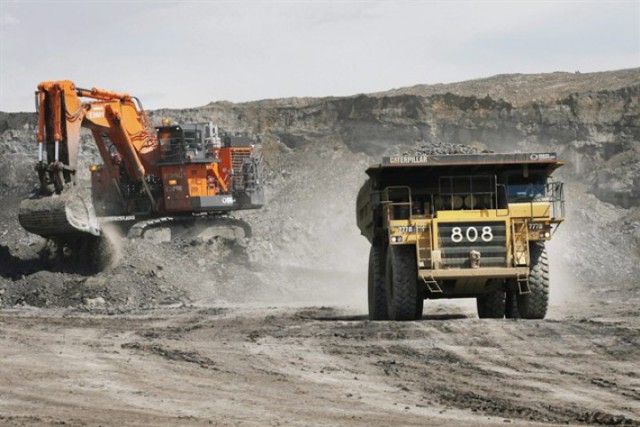
THE CANADIAN PRESS/Jeff McIntosh
Alberta’s oil sands producers received a sobering statement from some of North America’s most prominent scientists late last week: you’ve got to keep your product in the ground.
Calling oil sands development “a social and environmental legacy that will last for generations,” the group of more than 100 leading scientists from Canada and the U.S. called for a moratorium on any new oil sands projects.
The researchers, which include 12 Fellows of the Royal Society of Canada, 22 members of the US National Academy, five recipients of the Order of Canada, and a Nobel Prize winner, said they felt compelled to speak out in light of the threat oil sands projects pose to the international fight against climate change.
On Wednesday, June 10, they issued a consensus statement entitled ‘Ten Reasons for a Moratorium’ and launched a website, oilsandsmoratorium.org, which lays out the weight and magnitude of their call and presents the scientifically-grounded arguments supporting it.

“It’s rare that scientists speak collectively about controversial topics,” Simon Fraser University ecologist Wendy Palen said during a conference call on Wednesday. “Many of us had come to our own conclusions about the oil sands based on our research, and once we began comparing notes, we recognized the need to speak publicly, now, with a unified voice.”
The researchers hope to present their findings to Prime Minister Stephen Harper and his cabinet.
“No new oil sands or related infrastructure projects should proceed unless consistent with an implemented plan to rapidly reduce carbon pollution, safeguard biodiversity, protect human health, and respect treaty rights,” state the signatories of the 10 Reasons document. “Working together, we can solve the energy problems before us. It is not too late, but the time to act is now.”
Marc Jaccard, one of the statement’s authors, said expanding the oil sands and building proposed pipelines such as TransCanada’s Keystone XL in the U.S. or its Energy East project in Canada, would be “inconsistent with efforts to avoid potentially dangerous climate change.”
The energy economist at SFU said U.S. and Canadian governments should reject pipeline proposals; restrict the expansion of crude by rail; impose a significant carbon price on oil and gas extraction; and strengthen regulations to reduce local impacts.
While warning against all high-carbon energy sources, the scientists focused on the oil sands because it causes so much more pollution than conventional oil. Production in the oil sands has doubled since 2000, and several current pipeline proposals, including the Energy East Pipeline, would allow significant expansion to continue.
According to the Climate Action Network, a coalition of groups that promote solutions to carbon pollution, Canada is one of the top 10 emitters of greenhouse gas in the world, with Alberta contributing more than 70 per cent of the country’s greenhouse gas emission growth since 1990.
But during the telephone conference, Thomas Homer-Dixon, who leads the Centre for International Governance Innovation at Ontario’s University of Waterloo, was clear the scientists’ call was not an attack on Alberta.
“It’s about Canada as a whole, including Alberta, working together to find alternative pathways for economic development and prosperity,” Homer-Dixon said.
“Far sooner than most Canadians expect, we may have trouble selling our fossil fuel energy to the world. We need a Plan B, and the first step in that plan involves halting oil sands growth.”
In its statement, the group — which included climate scientists, economists, geophysicists, and biologists — provided up-to-date reviews of climate science, carbon economics, and wildlife conservation.
Their conclusion: allowing new oil sands projects to go ahead simply doesn’t fit with global plans and efforts to prevent dangerous climate change.

